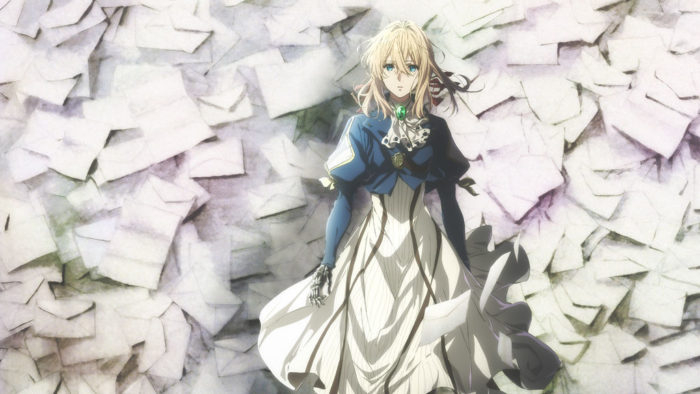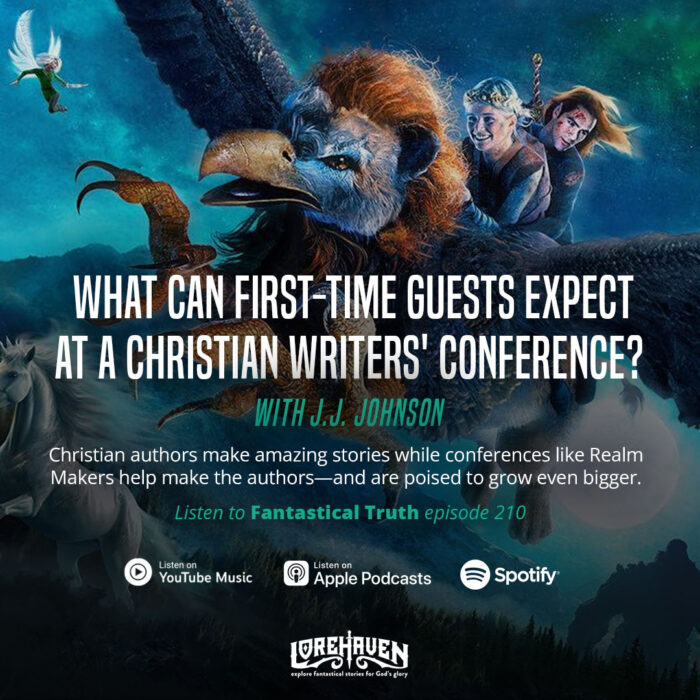Violet Evergarden: Letters of the Woeful Wages of Sin
A couple of years ago, anime geeks started seeing a trailer for an upcoming series called Violet Evergarden.
This trailer was only a half-minute long. But it offered enough to catch our interest, by hinting at a very moving story with art and animation quality usually reserved for anime movies. More news and a few more trailers slowly came our way, until, earlier this year, that series was released.1
The story of Violet Evergarden
After years of war, the people of Leidenshaftlich are ready for peace. In this post-war time, many educated young women want to begin work as Auto Memory Dolls–women who can type and take dictation, even writing personal letters, for their clients.
Violet Evergarden knows little except war and life in the military. Now she finds her new peaceful life to be difficult and confusing. But instead of retreating from society, she chooses instead to train to work as a Doll. As time passes and she meets more and more people, she learns to understand them and the messages they really want to communicate.
The series has a very episodic feel, especially in the middle of the season. Most episodes present vignettes of Violet traveling to a certain location so she can type for her company’s clients. Her job often involves writing letters. But she’s also given other writing assignments, such as when she is hired to help a playwright finish his most recent work.
But Violet Evergarden also shares an overall story. Much of this involves Violet’s desire to understand the last command her former commanding officer, Major Gilbert Bougainvillea, gave her during the war’s last battler. After this command, he went missing. Violet was hospitalized and had to be given artificial arms and hands.

Emotional devastation
My summary of the series may have seemed a bit dry, so let’s now state this one great truth:
If you’re the type of person who likes stories that shred your heart into a million sobbing pieces, Violet Evergarden is very much the show you have been waiting for and training for. It’s the series you deserve, and the one you need right now.
No, I’m not exaggerating one bit.
Storytellers like to think that our stories can accomplish many things, including being emotionally moving at the right time. This isn’t easy to do, though.
Getting a reader to care for a character is tricky business. Some stories I’ve come on seem to act on this assumption: if a character is crying, that means the reader or viewer will find that scene very moving. Maybe I’m rather hard-hearted as a reader or viewer, but I usually don’t find that approach very moving. It feels less like the storyteller is inviting me to care for these characters, as if to wring my neck while shouting at me, “You will care about this character!”
Violet Evergarden defies emotional odds by limiting its cast. In many episodes, Violet’s employers usually appear for just one episode. Yet each person is the story’s main emotional focus. This gives the viewer glimpses of how Violet is affected by other people. Her personality becomes less distant and mechanical. She’s better able to feel along with the people around her.
Even if you don’t enjoy or appreciate the series, it can teach you about emotions and storytelling–of course, only after you’ve recovered from the story’s emotional devastation.
Whatever happened to … ?
I can’t help but consider that may of the anime I watch, including Violet Evergarden, take the concept of sin even more seriously than some churches.
When Violet served in the military, she served as a killing machine. She was feared by the enemy and by men on her own side, too. In the series’s second half, Violet begins to deal with the actions she did as a soldier–the many lives she’d taken. She considers how those actions have affected her, even in ways she had not previously known.
But here the story’s main weakness also shows up.
Of course, Violet’s work as a Doll, and the letters she’s written to help other people, will be remembered. However, Violet’s work can only give her limited hope. Consider: Who has decided how many good works she must do to make up for any bad deed? If Violet writes 100 letters, will that make up for one person she killed as a soldier? Will she need to write fewer letters than that? Or, most likely, must she writer many more letters to pay for that one life? And what about all the other people she either killed herself, or had a part in killing?2
For us, even if we could somehow perform enough good deeds to make up for one sin, what about all the sins we commit? What about even the innumerable sins we committed while doing all those good deeds?
As the Bible rightly says, even the works we consider righteous deeds are no better than soiled rags.3
Yes, Violet Evergarden takes sin seriously. But the story can’t help not taking sin seriously enough. Perhaps most of all, this story can’t answer these questions: If we have sinned, who have we sinned against? Whose laws have we violated?
Here, a church that takes sin seriously can also offer real and serious hope. Such a church can point to each of us and say, “Yes, you have sinned, you have broken God’s laws.” Then this church can point to the Cross and say, “Here is God’s response to your sins, the sacrificial death of his Son, Jesus Christ, for the forgiveness of your sins. He gives this forgiveness to those who repent and believe the good news of Christ’s death for them.”
Conclusion
With that in mind, however, I can end with this. Go watch Violet Evergarden! Just be sure to bring whatever you need whenever a story hurts your heart (tissues, ice cream, etc.). Then get double of that when you reach episode 10.
- Editor’s note: Netflix subscribers can see Violet Evergarden in its entirety. ↩
- In brief, I do not think that a soldier killing another soldier in combat is a violation of God’s command not to murder (Exodus 20:13). Even after God gave this command to his people, Israel, they still fought wars. Their warriors often killed the warriors of their enemies, and in response to God’s other commands. ↩
- Isaiah 64:6. ↩




































Great show and great article! This is a rare show in that it makes you think about the interactions you have with the people you love.
Nice article and I agree this is a well-done and emotionally moving series. However, one nit. I don’t think the creators were saying that she could “balance” her sins with the healing she brought with her letters. Rather that she should go on living because there was still good she could do.
I’m only about half to three fourths through this series so far. I like it, but it hasn’t hit me that hard emotionally. Not sure if that’s mainly because of the mood I’m in while I watch it or if the exact way they try to set the mood doesn’t quite work for me. The show does feel rather slow, and I’m used to watching super tragic stuff, so I guess I’ll just blame it on that. That said, the animation is really nice and I do love the story it’s trying to tell. Hopefully it’ll hit me harder if I rewatch it at a later point in life.
Since Violet Evergarden isn’t a Christian story, maybe it’s more about self care, self healing and forgiving one’s self than actually atoning for sin? Maybe by writing those letters, she can feel like she is a positive force in the world and thus forgive herself and live a good life, rather than each letter tallying up to an amount she needs for atonement?
I agree with you that atonement is not really the main focus of the story. More time was spent on her learning How to Emotion. Her motivation for becoming a Doll rather than a deliveryman was because she wanted to understand what “aishiteru” (I love you) meant, because it was the last thing the Major said to her.
And after I was so careful to not spoil anything big…
Her motivation was brought up rather early in the story, though.
I watched the show and agree it really pulls on the emotions. Characters were well-rounded, pondering their own problems. By Violet helping others, she allowed herself to become more “human” emotional. I’m hoping there will be a second season.
Prepares yourselves. There is a movie coming. January 2020.
And by prepare, I mean, buy stock in a tissue company.